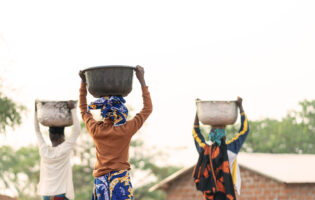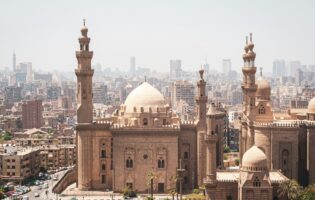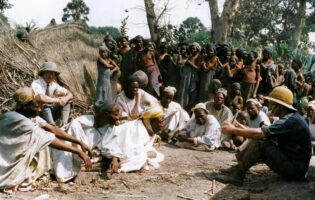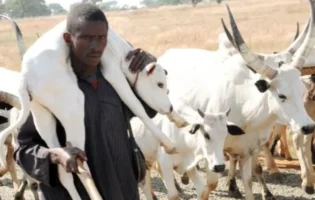When Jesus urged his followers to accept their calling as messengers of the gospel, he likened them to “fishers of men.” Yet we know that the Great Commission isn’t actually about tallying lives caught in our nets and presenting a headcount to Jesus upon our arrival in heaven. So how do we capture the work of missionaries today? How do we measure success without reducing God’s children to data points?
Reporting on relationship-building with the least reached is complex because quantifying heart transformation is something God ultimately does best. However, he offers wisdom in his word, reminding us that we shall know followers of Jesus by their fruit. To share the gospel is to accept that the true mark of impact may come years, and even decades, after we have joined a community.
In Ethiopia, fruit has been ripening for centuries – since Ethiopian evangelists and martyrs first proclaimed Christ at the beginning of the early church. The harvest remains plentiful for the Ethiopian Kale Heywet Church (EKHC), which was planted in the 1920s, when SIM missionaries chose to call Ethiopia home. For them, fruit flourished with 75 newly baptised believers. This is important, not because they numbered 75, but because they were zealous and ready to be sent themselves.
In 1937, war broke out in southern Ethiopia, and the SIM missionaries were evacuated. When they returned to Ethiopia in 1941, they discovered the initial 75 had multiplied and become thousands. Masses were pursuing Jesus, despite having little formal biblical training.
The following years could be described in the words of Eugene Peterson as “a long obedience in the same direction.” Steadfast Christians preached the good news of our steadfast God, resulting in a resilient EKHC that managed to survive persecution. The ‘90s ushered in a different government that permitted religious freedom, and since then, the EKHC has continued to grow.
Of this season, Worku Hailemariam (Director of SIM’s East Africa Office wrote: “In 1996, [the EKHC] saw the potential for sending Ethiopian missionaries internationally. At that time they sent 10 missionaries, along with SIM’s Dr. Howie and Jo-Ann Brant, to Tamil Nadu in South Asia.” He goes on to note that after three months in South Asia, 1,300 had professed faith in Jesus Christ. This initial trip became a catalyst for launching SIM’s East African Office in Addis Ababa in 2012.
Fast-forward a few decades, and we’re here, in 2020, as Kirubel (Personnel Admin for SIM East African Sending Office), tells me about the EKHC’s development of global missions. He says: “The church is doing a tremendous job in their local community and in different parts of regional Ethiopia. SIM is there to facilitate and send more missionaries, so there are more peoples being exposed to the gospel. It requires lots of different operations and unity to make that happen.”
That unity is apparent in a new Faithful Witness team comprised of four Ethiopian families from the EKHC. They’re partnering with SIM, leaving their homes and their church to disciple the Fulani people of Nigeria. These families will be the first Ethiopians to bring the gospel to this part of Nigeria.
Kirubel explains they feel what can best be translated as “a fire starting off” with passion to reach people globally. “We’re overwhelmed that they’d say, ‘This sounds crazy, but let’s just do it and trust God,” he shares. “It’s overwhelming sometimes how much the missionaries are committed to serve the Lord. It was an emotional moment for us.” Of course, the COVID-19 outbreak has halted relocation plans for this team. One family was set to move a few months ago, already packed and renting out their Ethiopian home. Now they wait, along with their fellow mission workers, for news of lifted travel restrictions. Until then, they continue living and serving together in their small village community.
Who knows how long it will be before an annual report heralds news of a revival among the people of Northern Nigeria?
But the EKHC’s legacy is one of planting and abiding. Because of the Ethiopians’ spiritual fruit, the Fulani will meet people who love Jesus. Not only is this success, it is the kind of kingdom work that blesses the Father and leads him to say: “Well done, my good and faithful servant.” In the future, perhaps we will hear of Fulani believers in these contexts, mobilising and sharing the gospel because of God’s anointing on an SIM team that once called Nigeria home.
Pray for:
- Continued fruitfulness in the lives of Ethiopian Jesus followers.
- Northern Nigerian Fulani to respond in faith to Christ.
- The EKHC to remain unified in their purpose to share the good news of salvation.
- The Faithful Witness initiative to increase gospel access in places with little to no Christian witness.




